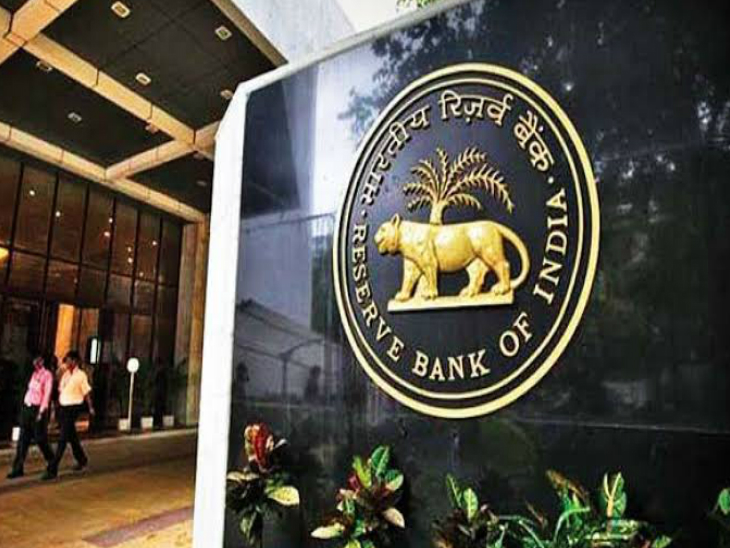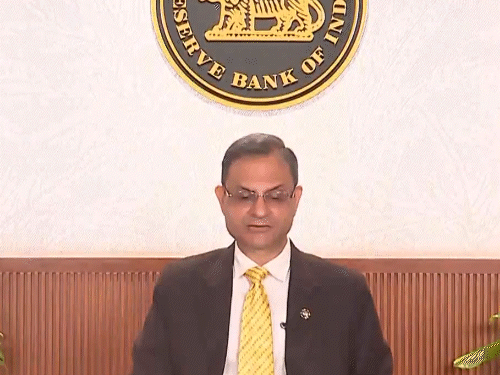Mumbai2 minutes ago
- Copy link

RBI is preparing to bring new rules regarding products to be purchased on EMI in some time.
Mumbai is preparing to create such a system in which consumers do not repay EMI, then the product and services purchased on debt will be closed from far away. Its objective is to make the recovery of small loans easier for products like mobile, TV, washing machines. RBI has discussed the subject with banks and financial institutions.
Finance expert Adil Shetty says that the Reserve Bank will also need to look at a particular aspect. The debt to buy phone, laptop or other such things is collateral-free. That is, no property of the customer has to be pledged instead of them. That is why their interest rate is higher i.e. 14-16%.
In such a situation, if the new system is implemented, then these debt will come in the category of secure loan (eg home, auto lean). In such a situation, before giving these rights to banks, the category of such loan will have to be changed and interest rates will also have to be reduced.
Everything that is important for you to know
Many countries including America have such systems that EMI The car cannot start if not filled.
1. How will it be implemented here? The system that RBI is considering will be mainly applied to small consumer loans (such as mobile, smart TV, washing machine, electronics). You will already enter apps or software in the product purchased on EMI. If the customer does not pay the installment, then the product will be locked from a distance from that software.
2. Is private data threatened? The new rule will ensure that the customer’s prior consent is taken and his personal data remains safe even when the phone is locked. That is, to ‘offer services’ here means that the phone (or device) should not be used until the arrears are paid. If allowed to lock them to banks, then they will get access to data of millions of people. These data can be leaked from there. This may increase blackmailing and ransom incidence. RBI and banks will have to look at this aspect.
3. Is it possible in every product? Digital and smart device water This is easily possible in mobile, tablet, laptop, smart TV etc., as their software can be controlled from distance. There is already a system in many countries in a vehicle (car/bike), so that the car does not start if EMI is not filled. This is possible in home appliances (fridge, washing machines etc.), but there is still less in the market like India. Non-digital items (such as furniture, ordinary bikes do not run this remedy. In such a situation, traditional recovery agent is a legal action route.
4. Which countries are doing? America: Car loan uses ‘Kill switch technology’. If EMI is not repaid, the lender can close the car from a distance.
Canada: Companies install starter interrupt devices, which do not allow the car to turn on for non -payment.
Halfka (Kenya, Nigeria etc.): ‘Pay-Ej-U-Go’ solar system is common here. When EMI is not filled, the company turns off the remotely solar panel or battery. As soon as the installment is filled. The system is turned on.
5. What is the benefit and loss?
Advantage: Default case goes. The trust of the lenders increases and people with weak credit also get a chance to buy products.
Disadvantage: Danger on consumer rights, impact on employment, education, health due to closure of services (phone/cars) of need.
More one-third of people buy electronic items on EMI
The share of small debt in the country is continuously increasing. The 2024 study of Home Credit Finance says that more than one-third of consumers are purchased on electronics, such as mobile phones, EMI. The country has more than 1.16 billion mobile connections. According to CRIF Himark, Rs 1 lakh. Default rate is the highest in loans than lower than. This situation may improve.
,
Read this news too …
Loans will not be cheap, because inflation decreased: RBI retained the repo rate at 5.5%; GDP growth estimated from 6.5% to 6.8%

The Reserve Bank of India (RBI) has not changed the repo rate for the second consecutive time. It is kept at 5.5%. That is, loans will not be expensive and your EMI will not increase. Earlier, there was no change in the meeting held in August. Read full news …



